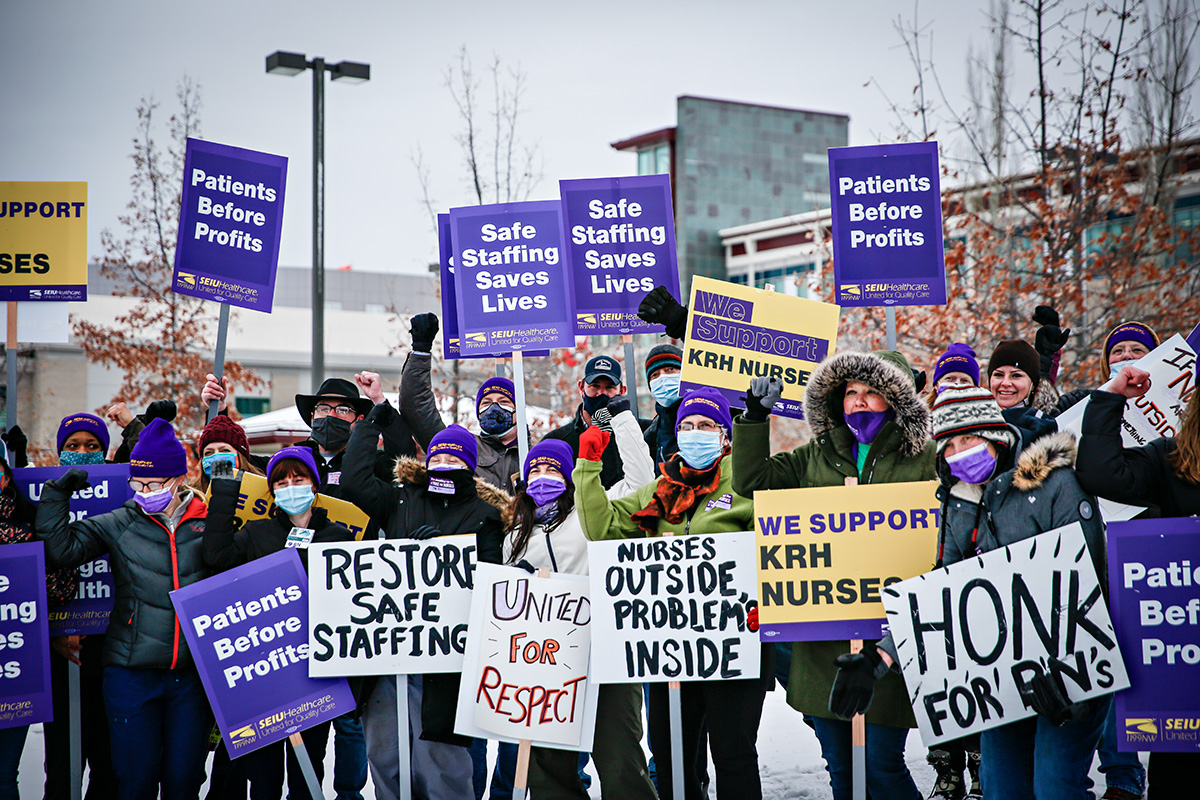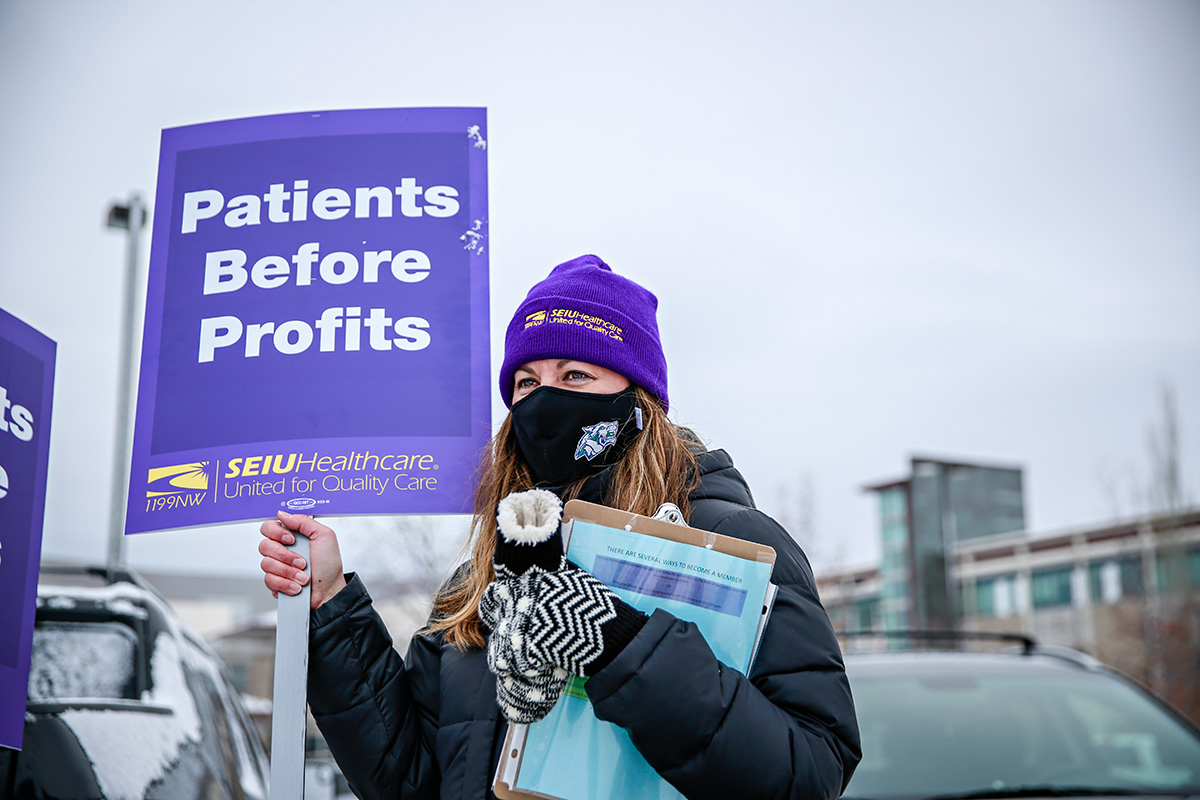KRH Nurses Picket as Collective-Bargaining Negotiations Grow Heated
Nurses say management invests money in new facilities and rebranding instead of patient care and staff; administrators say nurses’ demands are unrealistic
By Myers Reece
A steady stream of unionized Kalispell Regional Healthcare nurses, joined by supporters, took to the picket line on Feb. 23 to publicize complaints about hospital administrators who they say are putting “profits before patients.”
KRH executives, meanwhile, counter that nurses are misrepresenting negotiations and making unrealistic demands.
Each side accuses the other of slowing down the negotiation process, which has been ongoing since late 2019. The sticking points boil down to economics: staffing, wages, retention.
Taken altogether, it’s clear that collective-bargaining discussions have arrived at a bitter crossroads.
“You’re buying all these hospitals, you’re changing your name: Why can’t you put some money toward nurses who are on the ground taking care of the community?” Cindy Hinzman, a PACU nurse and member of the bargaining team, said in summing up the nurses’ perspective.
KRH nurses voted 372-199 to unionize in a July 2019 election, creating a bargaining unit of 650 nurses spread across the hospital system, including Kalispell Regional Medical Center, The HealthCenter, Brendan House and other clinics, although it excludes North Valley Hospital.
The nurses are represented by Service Employees International Union (SEIU) Healthcare 1199NW, a Washington-based union.
Nurses have cited concerns over staffing levels, quality of patient care and safety, unfair wages, lack of wage transparency, loss of benefits, low morale and inability to voice concerns as grievances. They say those factors make it hard to recruit and retain quality employees.

Since bargaining kicked off in the fall of 2019, nurses say they have proposed staffing increases in all units, a committee to give nurses a voice in staffing decisions, and wages and benefits that would better enable the recruitment and retention of “top-quality staff to care for the Flathead Valley community.”
“(Administrators) say they are too busy to bargain and don’t have the resources to invest in frontline staff,” SEIU stated in announcing the Feb. 23 picket. “At the same time, management has put time and money into acquiring new facilities and launching an expensive rebranding initiative.”
Hospital officials say the levels of compensation increases requested by nurses are unreasonable, as are other demands. Chief Nursing Officer Ryan Pitts and Human Resources Executive Director Brian Mathews recently sent a memo to nursing staff regarding the picket.
“The union alleges that KRH is unwilling to address compensation, but the union’s insistence of these unrealistic proposals is limiting the progress of bargaining,” they wrote. “KRH has shown its commitment to wages and benefits — we’ve improved wages, health insurance, and the retirement plan for all non-union employees in the past 18 months.”
“While SEIU blames KRH,” Pitts and Mathews continued, “the reality is that SEIU is responsible for how slow the negotiating process is proceeding, and their demands are unrealistic when compared to other hospitals in the state.”
SEIU has circulated research that shows the pay scale for nurses at KRH to be lower than at smaller hospitals in Montana and considerably below healthcare institutions in places with comparable cost of living.
Nurses gave KRH management the required 10-day notice of the informational picket, which was not a strike, as nurses participated during their breaks, before or after their shifts, or on a scheduled day off. SEIU stated that a “picket is the right of every worker and does not interrupt patient care,” while KRH management said pickets are “usually an attempt to pressure an employer.”
“We’re not asking for the moon; we’re asking to be competitive because we’re losing people left and right,” Hinzman said. “Everyone is working overtime because we can’t retain staff. People are leaving to go make more money elsewhere. It’s insulting to us. We’re all tired and angry.”